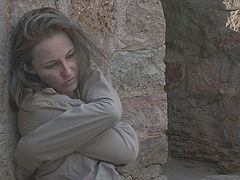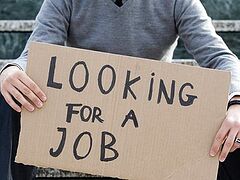Autumn is over, but the depression and despondency associated with it are not: There is too much global negativity around us. There is the pandemic, lockdowns, economic crisis, and the fear of losing freedom in the era of QR-codes. This is against the background of the sacralization of “depression” in social media. We asked some Russian pastors about how to accept these troubles and not to lose heart, how to overcome the anxiety and apathy that come from the awareness that nothing depends on us. We will be posting these discussions in four parts.
Hieromonk Paisy (Novozhenov), Vologda, the Zaonikiev Monastery of the Vladimir Icon:
 Hieromonk Paisy (Novozhenov) We lose heart, that is true. We priests, monks, and abbots despond as well. Everyone desponds. But despondency is a flu-like illness. It is necessary to be cured and recover because despondency is a sin! You need to think carefully why you are despondent and find the reasons point by point. There may be three or four reasons for despondency. For example, the death of a loved one, loneliness, lack of work, lack of opportunities for self-fulfillment, bullying, persecution, health problems and so on. And when we sketch out these points, in front of them we must prescribe a treatment for ourselves. And there is no such sorrow on earth that can’t be overcome with God’s help. And pain is inevitable. Our disfigured world hurts us from time to time. But we should always rise from our knees, crawl and get up with all our might. The spirit must be awake. We need courage, resourcefulness and a sense of humor, otherwise we would have gone crazy a long time ago. Joy does not come from meditation and autosuggestion. Only when we solve real problems in our lives will joy seep into our hearts, like a ray of light through heavy clouds of anxiety. Joy is also connected with the grace of God. When we stop being depressed, angry, lazy and afraid; when we stop hating and sinning shamelessly, it becomes easier for God to touch our lives, enter more tangibly into our lives, souls and minds. Then there will come bright weather in a person’s soul, and he, surprised, will say: “How good everything is! Why was I so depressed?”
Hieromonk Paisy (Novozhenov) We lose heart, that is true. We priests, monks, and abbots despond as well. Everyone desponds. But despondency is a flu-like illness. It is necessary to be cured and recover because despondency is a sin! You need to think carefully why you are despondent and find the reasons point by point. There may be three or four reasons for despondency. For example, the death of a loved one, loneliness, lack of work, lack of opportunities for self-fulfillment, bullying, persecution, health problems and so on. And when we sketch out these points, in front of them we must prescribe a treatment for ourselves. And there is no such sorrow on earth that can’t be overcome with God’s help. And pain is inevitable. Our disfigured world hurts us from time to time. But we should always rise from our knees, crawl and get up with all our might. The spirit must be awake. We need courage, resourcefulness and a sense of humor, otherwise we would have gone crazy a long time ago. Joy does not come from meditation and autosuggestion. Only when we solve real problems in our lives will joy seep into our hearts, like a ray of light through heavy clouds of anxiety. Joy is also connected with the grace of God. When we stop being depressed, angry, lazy and afraid; when we stop hating and sinning shamelessly, it becomes easier for God to touch our lives, enter more tangibly into our lives, souls and minds. Then there will come bright weather in a person’s soul, and he, surprised, will say: “How good everything is! Why was I so depressed?”
We look too narrowly at what is happening around us today. Some “autumn depression” is on the agenda. Who determines this “agenda” for us? If we look at our life on Earth in its ontological dimension, we will see that the agenda of depression of humanity loomed ahead even at the dawn of the world’s history. Both Adam and Eve saw these two paths: the path of being in despair or being creative and cultivating the earth. It is, in essence, a path of damnation or a path of blessing. And a person himself chooses whether to be depressed on earth or to transform it. Cain followed the path of depression, envy and despair. Although he could have married, given birth to wonderful children, settling on earth and doing various creative things as a legacy to his descendants. But he waged a war, envied and robbed. Foolish. And, of course, in such an abnormal state a person gains nothing but depression.
An Orthodox Christian knows that the Lord rules the world, cares for its preservation and turns all negative things that people do into good. It’s up to us to choose: how to direct our will to reasonable behavior, and how to live through earthly problems properly. At the first stage, we need to give up gross sins. Sorrows often befall us through our own fault. A person gets drunk, then he has a headache, and next he is fired from his job, and so on. And then he complains that life is unfair, and God is to blame for something. However, sometimes a person really leads a very good life. He does not offend anyone, he works hard, he is honest and decent, he prays to God and honors Him. But misfortunes come, and he loses heart. Then he must remember Job the Long-suffering and Christ Himself. In fact, pain and sorrow cannot be avoided while we live on earth for these short years and decades. Sometimes we have such pain that we don’t even want to pray or do anything. But we should force ourselves to do something, fill our lives with work and creative activity, and then little by little we can overcome despondency and depression. And the most important path here is to start helping other people.
The pandemic is a multifaceted issue. It really exists, and appropriate measures are needed—precisely those that are known to everyone: If you feel unwell, don’t go anywhere and don’t spread the virus. But the worst thing is our general feeling of helplessness. We know that we were not ready for the epidemic—there are not enough doctors, hospitals are not equipped adequately, and the salvation of a sick person is often in his or her own hands. And many tragedies have happened because treatment began too late...
To be continued…



